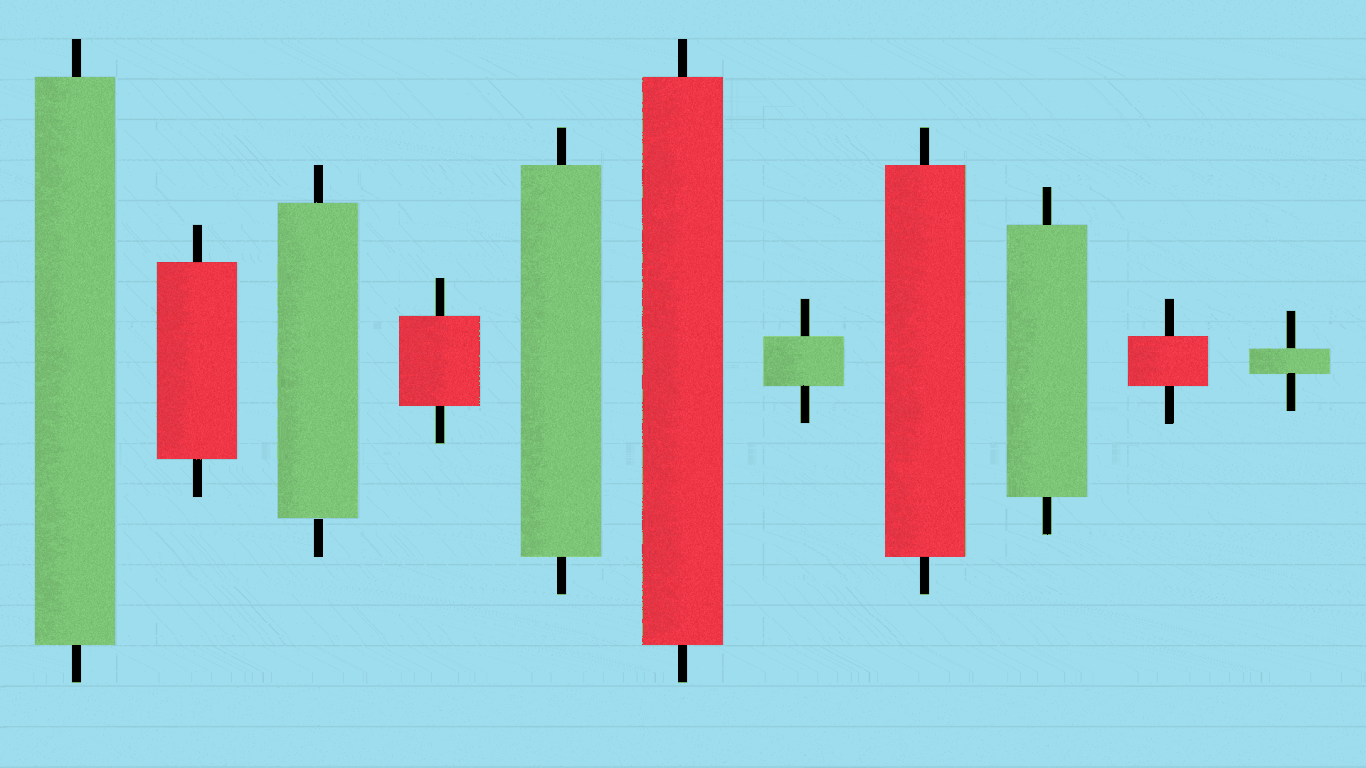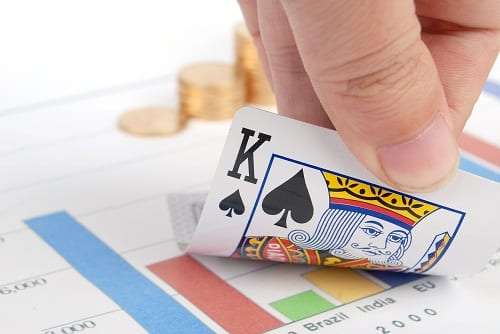Gambling Vs Stock Market
- Gambling is time-bound. The concept of time is another key difference between stock investing and gambling. Gambling is a time-bound practice, but stock investing can last several years. In gambling, once the game or hand is over, your chances to make more profit from your wager are closed.
- The stock market is NOT meant for gamblers. When I look at markets (and we’ll expand to all markets, not just stocks), what we search for is a risk vs reward opportunity that meets our time frame, risk parameters and objectives.
Gambling Vs Investing – Investing Pros and Cons. When I talk about investing, I’m mainly discussing investing in public equities through the stock market. What investing has over online casinos and gambling is that over the long run, the market rate of return for the stock market is 8%.
Many people do not differentiate between the following terms when they invest their hard-earned money in different asset classes, particularly in stock market and often get confused between;
1. Saving
2. Investment
3. Speculations
4. Gambling
We often use the word savings and investment interchangeably, while both are different and both are necessary to secure our future. Saving is done for purchases and emergencies while investment is being done for creation of wealth. I have heard from most of the people that they are savings for their retired life, we need to understand that if we are saving for our retired life we need to invest that money to create wealth. We need to allocate the money wisely between saving and investment, it depends upon behavior of each individual and allocation can be made accordingly. In general, we shall allocate equivalent of three to six months expenses for savings and any excess over it should be allocated for investment.
There is a razor thin differentiation between investment and speculations, in reality it depends upon our own behavior as an investor to differentiate between investment and speculation. Investment and speculative deals are generally done for real assets.
Investment can be defined as “The employment of funds to acquire certain assets after due diligence for mid to long period of time, with the objective of wealth creation and additional income in future”
Speculative investment can be defined as “The employment of funds to acquire assets for shorter duration of time to take advantage of fluctuations in prices of underlying assets”
However, Gambling can be defined as “The employment of funds for entertainment/fun with the chances of return depends upon probability of certain situation or events”. For example, deploying funds on horse racing can be defined as gambling.
Key differential of investment vs speculation vs Gambling is;

1. Risk Analysis and Risk appetite: Investor will generally rely on the fundamental analysis of financials and other factors which can affect the price of the asset class and their decision to invest in particular asset is based upon certain fundamental values associated with the asset. Investors do have long term risk and return perspective. While speculators generally rely on the flow of the wind without analysing any fundamentals. Speculators do take higher risk for expects higher returns in short period. Gambler risk entire capital on bet and relay mainly on luck. They are the highest risk takers and ready to lose original investment also.
2. Price of the asset: Investor does not look at the price of the asset rather it looks at the asset itself to determine the decision to allocate some money now to get some money back later on. Investor does not get influenced by daily fluctuations of the asset price, because his/her allocation of money decision is based on the intrinsic value of the assets rather then price. Speculators look at the price of the asset to allocate the money and they do get influenced by the daily fluctuations of the price of the assets, aim of the speculator is to get some quick reward. Gambling is based upon odds and bets are placed only on assumptions.
3. Time Horizon: Investors allocate money for a particular asset for longer period while speculators allocate money for shorter period, on the other hand gambler place bet for immediate gain.

4. Leverages: An investor allocates money from its own resources for investment while and speculators may also rely on borrowed money to allocate. This is applicable mainly to assets belongs to equity market. Gambler generally allocate their own money and place bet for entertainment or fun.
An individual’s approach towards investment identifies the individual either investor or speculators. If an individual is investing without fundamental analysis, only on the basis of market sentiments and certain news, for a shorter duration can be defined as speculative investor. An Individual who invests with proper fundamental analysis for longer period of duration can be defined as investor.
In conclusion, Investor will get stable return over a long run and I advise all my readers to invest wisely after proper analysis of the company to secure their hard money for fairly good chances for creation of wealth. If you are a speculator, make sure your entry and exit to the market is at right time and always be ready to higher risk of loss of original investment in worst circumstances. Gambling should be avoided always and in most of the cases gambling is not legal also.
Sports Gambling Vs Stock Market
Podcast: Play in new window Download
LISTEN (mp3audio) (5:45 min)
Right before the 2010 Super Bowl, a page 1 article in the February 5, 2010 Wall Street Journal opened with this sentence:
“Investors are sometimes accused of treating the stock market like a casino. Now, one Wall Street firm wants to treat casinos like the stock market.”
The article details the decision of a Wall Street bond-trading company to take over the management of sports betting at a new Las Vegas casino. Lee Amaitis, the company executive who runs the betting operation, says the firm got into sports gambling because “we wanted to turn gamblers into traders.” Using sophisticated financial-markets software, bettors can not only bet on the final outcome, but also make wagers on events during the game, such as whether the next pass might be completed, or who kicks next field goal.
On several occasions, the article noted similarities between investing and gambling. The article even featured a bond trader-turned-professional gambler who said “Wall Street is just a form of legalized gambling.”
Is investing just a form of gambling? For many investors, the answer may be “yes.” But it doesn’t have to be. And it probably shouldn’t be.
In July 2000, Tom Murkco, the CEO of Investor-Guide.com, published an essay titled “What is the difference between gambling and investing?” While Murkco noted that many aspects of gambling and investing might appear similar, there were several distinct and easily defined differences.
For either investing or gambling, the beginning of Murkco’s definition is the same: An activity in which money is put at risk for the purpose of making a profit.

But while the purpose of gambling and investing is identical, the methods by which the purposes are achieved are drastically different.
Here are Murkco’s distinctions:
When someone invests…
- sufficient research has been conducted;
- the odds are favorable;
- the behavior is risk-averse;
- a systematic approach is being taken;
- emotions such as greed and fear play no role;
- the activity is ongoing and done as part of a
- long-term plan;
- the activity is not motivated solely by entertainment or compulsion;
- ownership of something tangible is involved;
- a net positive economic effect results.”
When someone gambles…
- little or no research has been conducted;
- the odds are unfavorable;
- the behavior is risk-seeking;
- an unsystematic approach is being taken;
- emotions such as greed and fear play a role;
- the activity is a discrete event or series of discrete events not done as part of a long-term plan;
- the activity is significantly motivated by entertainment or compulsion;
- ownership of something tangible is not involved;
- no net economic effect results.
When defined this way, it’s easy to see the differences between investing and gambling. It’s also easy to see that because of the methods some people use to invest, their behavior may more closely resemble gambling.

For example, industry studies have repeatedly shown that the behavior of mutual fund investors often accounts for poor investment performance. Because they don’t approach investing systematically, emotions like greed and fear may cause people to make impulsive decisions, with little or no research. Not surprisingly, the results from these methods more often resemble the returns from lottery tickets.
Not Gambling with Your Investments: Easier said than done?
In his book, Snap Judgment: When to Trust Your Instincts, When to Ignore Them, and How to Avoid Making Big Mistakes With Your Money,author David Adler says it’s the psychological component of investing that is the most difficult to manage. Adler contends that behavioral research shows many individuals have an almost over-whelming set of hard-wired dispositions to take gambles rather than make investments. Adler quotes Andrew Lo, an MIT professor of finance:
Gambling Addiction And Stock Market
“The same neural circuitry that responds to cocaine, food, and sex has been shown to be activated by monetary gain as well.”

For some people, the thrill of investing/gambling can be addictive. But when the stakes are one’s financial future or retirement, or your children’s college education, the need for a thrill shouldn’t come by jeopardizing one’s investments.
This imperative to not compromise investing by gambling highlights one of the greatest benefits of working with a team of financial professionals: Besides receiving informed advice, a financial professional can often serve as a protection against gambling with your investments, by encouraging you to make sound decisions based on good research that have a high likelihood of success.
Take a moment to consider the last few major financial decisions you’ve made in the past year. Then look at the list above. Did you make an investment or take a gamble?